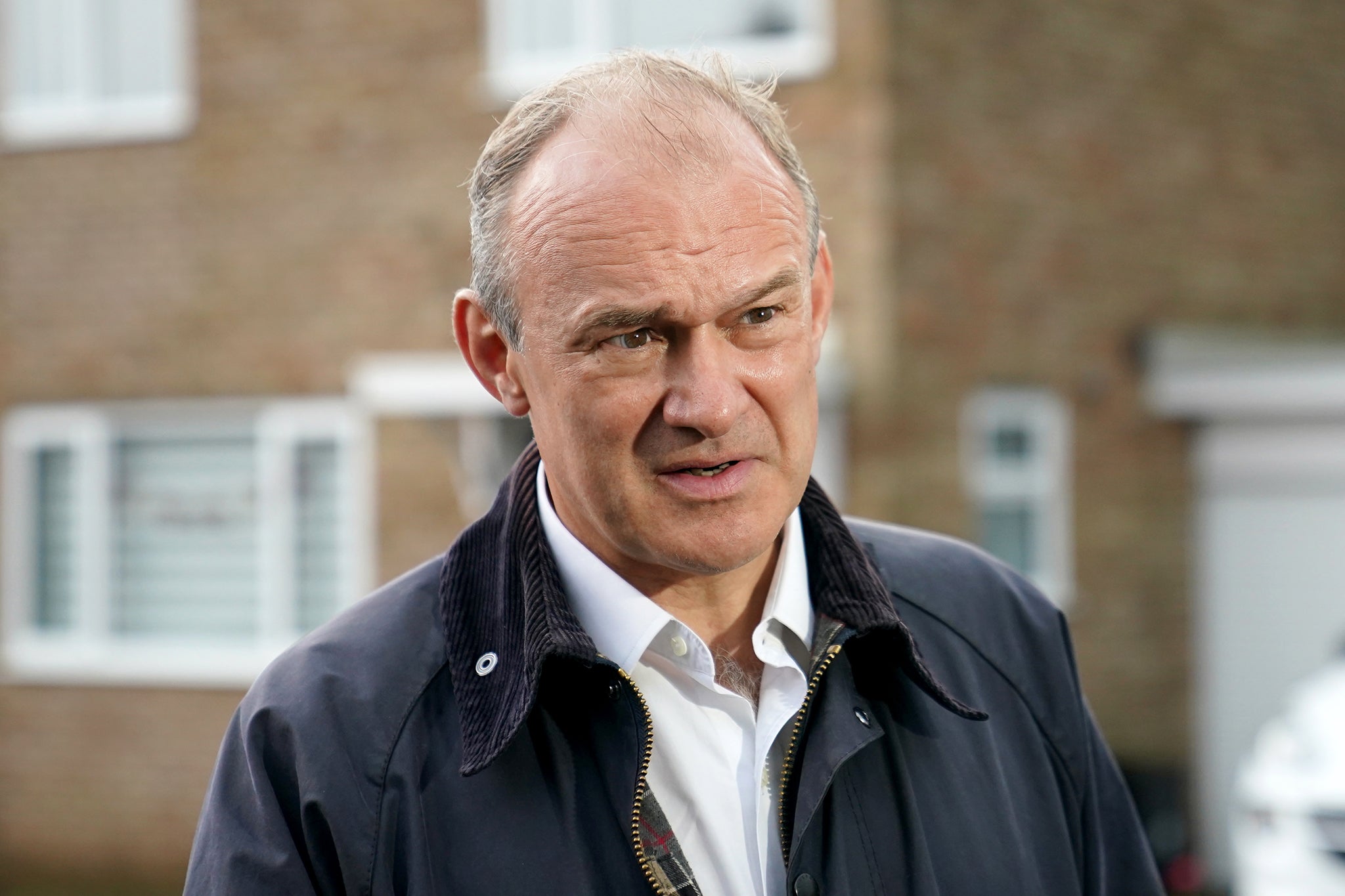Is this the worst week yet for the Lib Dems?
Party leader Ed Davey has been attacked for failing to tackle the Post Office Horizon IT project scandal during his tenure as minister for postal affairs, writes Andrew Grice. But how culpable is he?


This week the Liberal Democrats have enjoyed an amount of media coverage a minority party can only dream of. Unfortunately, 99 per cent of the headlines were negative: they were about their leader Ed Davey’s failure as minister for postal affairs during the 2010-15 coalition to tackle the Post Office Horizon IT project scandal.
The Lib Dems were on safer ground in joining the SNP (who have supplanted them as the “third party” in the Commons) and Greens calling for parliament to be recalled this weekend to vote on the UK’s airstrikes on targets linked to Houthi rebel bases in Yemen, with the aim of protecting commercial ships in the Red Sea.
Although Davey regrets not asking more questions about the disgraceful treatment of thousands of innocent branch owner-managers, he is only one of 19 postal affairs ministers since Horizon was introduced in 2000. Four were Lib Dem MPs, seven Labour and eight Conservative (though two were there for five minutes during the turmoil of the Johnson and Truss regimes). It’s crystal clear that until recent years, ministers were told a pack of lies about Horizon by the Post Office.
The focus on Davey is partly because he is a party leader, but stems mainly from the desire of the Tories and their newspaper cheerleaders to weaken the genuine threat the Lib Dems will pose to Rishi Sunak’s party in blue wall Tory heartlands at this year’s election.
This week senior Lib Dems have relived one of their worst nightmares: when Nick Clegg outshone David Cameron and Gordon Brown in the first ever leaders’ TV debate at the 2010 election, stories appeared in Tory papers alleging Lib Dem funding irregularities. It destabilised the party and took some of Clegg’s small team away from the election to investigate claims that proved groundless. Tory sources later admitted they orchestrated the dirty tricks.
Similarly, today’s Tories are happy for their pugnacious deputy chair, Lee Anderson, to call for Davey’s resignation, and delighted to see Keir Starmer being linked to the Post Office affair. It fits nicely with their election plan to attack the Labour leader over his five years as director of public prosecutions (DPP). Starmer’s aides already know what to expect. Even if Sunak doesn’t get his hands dirty, the Tories will find a way to attack Starmer over the decision not to prosecute paedophile Jimmy Savile.
Starmer was not informed about it. One ally told me confidently his work as DPP, such as prosecuting terrorists, will prove “an asset, not a liability” at the election. But it’s going to get nasty. In fact, only three subpostmasters were taken to court by the Crown Prosecution Service on Starmer’s watch – the overwhelming majority were private prosecutions by the Post Office – and he was not aware of these cases.
For the Tories, headlines about Davey and Starmer are a useful diversion from their own failures on the Horizon scandal, notably the glacial pace since the wronged subpostmasters won a famous High Court victory in 2019. Kevin Hollinrake, the current postal affairs minister, admits the issue was on the “too difficult pile”. He insists the unprecedented decision to overturn 700 convictions en masse and compensate subpostmasters was in the pipeline, but admits it was speeded up by ITV’s powerful drama, Mr Bates vs the Post Office. That is an understatement – I have never seen a government move so quickly.
It’s a terrible indictment of our politics that the subpostmasters were ignored by all three parties for so long. They had the support of a handful of MPs with constituency cases – such as the now-Tory peer James Arbuthnot and Labour’s Kevan Jones – but lacked a powerful position from which to campaign. Their story wasn’t about Brexit or another tribal issue and wasn’t going to win votes at an election.
As soon as ITV’s very human drama captured the public’s attention, the scandal catapulted to the top of the political agenda – and, instead of working with other parties for the common good, the Tories opted for the usual point-scoring and scapegoating (Labour and the Lib Dems, by contrast, are not throwing mud at each other).
In my view, the three parties are equally to blame. So, Davey should reject calls for him to resign. Even the real-life “Mr Bates”, the heroic campaign leader, Alan Bates, admits it is “a bit much” to single him out.
The saga is a bad advert for the huge turnover of “here today, gone tomorrow” ministers; they are more likely to get on top of a problem if the government pack is not shuffled so frequently (we have had 16 housing ministers since 2010). The constant churn makes ministers very dependent on their civil servants. They, too, have serious questions to answer about the Post Office controversy – three of them sat on the company’s board. Did they ever raise a warning flag?
The real question here is not which minister or party messed up – they all did – but which figures at the Post Office were responsible for a conspiracy and cover-up that cost several lives and wrecked many others.






Join our commenting forum
Join thought-provoking conversations, follow other Independent readers and see their replies
Comments